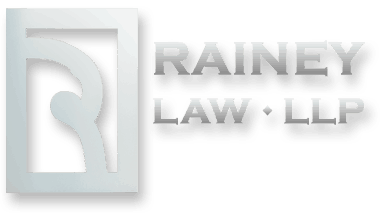 Congress passed the Corporate Transparency Act on January 1, 2021, which will likely be one of the biggest changes in business law in decades. Given the substantial changes, we provide a three-part newsletter series to catch you up on the good, the bad, and the ugly. This Part 1 covers the good news related to the Corporate Transparency Act. On the good side, the Corporate Transparency Act will not trigger until 2024. Yet it makes sense to be ready for it when it does.
Congress passed the Corporate Transparency Act on January 1, 2021, which will likely be one of the biggest changes in business law in decades. Given the substantial changes, we provide a three-part newsletter series to catch you up on the good, the bad, and the ugly. This Part 1 covers the good news related to the Corporate Transparency Act. On the good side, the Corporate Transparency Act will not trigger until 2024. Yet it makes sense to be ready for it when it does.
Parts of the Corporate Transparency Act are retroactive and include businesses that are already in existence. Businesses created on or before January 1, 2024, must submit the Beneficial Ownership Information by January 1, 2025. Any businesses created after January 1, 2024, have only 30 days to submit their report.
Corporate Transparency Act
The Corporate Transparency Act is the result over a decade’s effort to tackle issues related to money laundering, terrorism, and crime. The Corporate Transparency Act strengthens anti-laundering measures by requiring “reporting companies” to provide U.S. Treasury Department’s Financial Crimes Enforcement Network a report regarding the company’s “beneficial ownership”. “Reporting Companies” include all domestic and foreign companies, except as provided below. The Corporate Transparency Act should make it easier to find shell companies created for illicit activities.
“Reporting Companies” Exemptions
The U.S. Treasury Department’s Financial Crimes Enforcement Network also created rules exempting some companies from the reporting requirement, which may alleviate additional administrative burden from certain companies formed and operating in the U.S. Under the exemption, the following companies are by definition not Reporting Companies subject to the reporting requirement:
- Large Operating Companies with 20 or more full time employees, making $5 million+ in revenue each year and physically operating in the U.S.;
- Government entities;
- Companies registered with the Securities and Exchange Commission;
- Certainty entities covered under the Commodity Exchange Act;
- Certain investment advisers, investment companies, and insurance providers;
- Accounting firms;
- Public utilities;
- Certain pool investment vehicles;
- Entities that are tax exempt
- Certain entities that exclusively provide financial assistance to tax exempt entities; and
- Certain inactive companies.
“Beneficial Ownership” Exemptions
The beneficial ownership report requires the identify of any entity or individual who (i) substantially controls the business, and (ii) owns 25% or more of the company to be reported to the U.S. Treasury Department’s Financial Crimes Enforcement Network.
The Corporate Transparency Act also includes exemptions regarding beneficial ownership. Even if the company is a Reporting Company under the Act, the following ownership interests do not have to be reported:
- Minors;
- An individual acting on behalf of another individual;
- An individual acting solely as an employee of the company; and
- An individual whose ownership of the company is through right of inheritance.
The Reporting Company only needs to include information regarding a creditor if the creditor (i) substantially controls the business, and (ii) owns 25% or more of the company.
Contact us to schedule a strategy session regarding whether your company has reporting requirements under the Corporate Transparency Act, or qualifies under one of the exemptions. Call us at 405-753-1504 to schedule your strategy session today! Visit our website or watch here to learn more about Rainey Law and how we can serve you!




